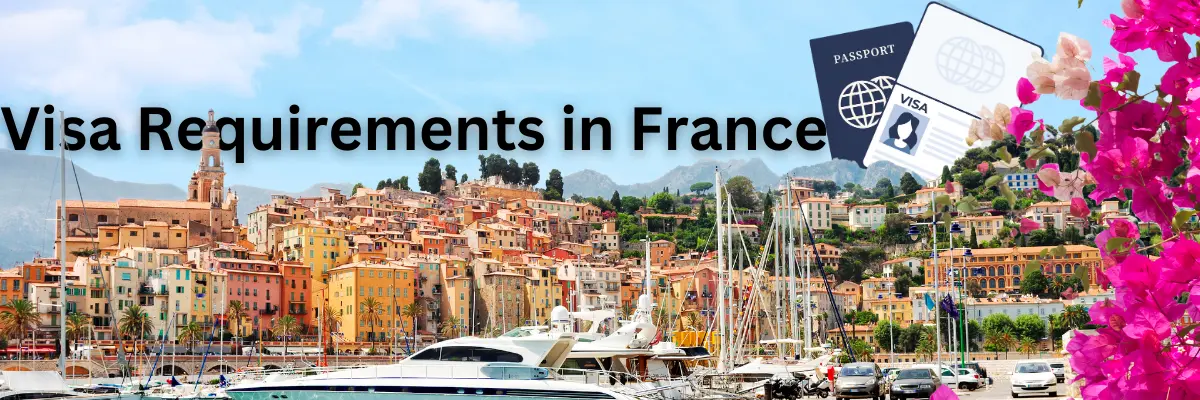20 Jul 2023 | An All-Inclusive Handbook for Employment in Italy!
0
150
Introduction
Besides its beautiful scenery, history, and fantastic food, Italy has also become a destination for many job seekers globally. The All Inclusive Handbook for Employment in Italy is essential to get the most out of your working experience in this beautiful country, whether you are an expatriate or a native resident. With this complete guide, you will find everything you need to know to start working in Italy in peace! From labour laws to work permits and taxation to work culture, we'll cover it all on how to follow a fulfilling career in Italy.
Italy provides a unique work environment, balancing age-old traditions and outstanding business models. Be it in the fashion industry in Milan or the southern coastal regions; this blog will take you through everything you need to know to make your way through the Italian job market. Once you know such information about your workplace, it helps you take the best step in your career as well as it will assist you in your career path. Here's a detailed examination of everything you need to get to work in Italy.
Turn Your Study Abroad Dreams into Reality! Book Free Consultation with Our Experts.
Navigating Italian Labor Laws: A Key to Employment Success
With respect to employment in Italy, the squares of Italy are the work players underpinned by the nation's work law. Learning these laws is necessary for you to come out victorious and have a harmonious working experience. They cover crucial aspects of an employment contract, like hours of work, employee rights, termination proceedings, etc.
The average working hours in Italy are 40 hours split over 5 days, but depending on the job or contract type, the hours may vary. Italy is a great place for people looking for a good work-life balance, with employees entitled to paid vacation days and only needing at least four weekly vacations every year.
Key Points:
- Types of work contracts: Italy has several options of work contracts: indefinite, fixed-term, and project-based ones. Each has its own set of rights and responsibilities that include, among other things, job security, salary, and benefits.
- Termination: However, employment termination is limited by strict regulations; Workers can dispute unlawful termination, which might entitle them to severance pay in some cases.
Understanding these fundamental laws will help you feel confident and secure when working in Italy.
Study in Italy: Where Education Meets Culture, Art, and Opportunity!
Contracts and Employment Types: Which One Fits You?
- Before accepting a job in Italy, it's essential to understand the different types of employment contracts available. Whether you're a full-time employee or working part-time, Italy's labour laws define various contract types that cater to other job roles and industries.
- Indefinite Contracts: These are the most common form of employment in Italy, offering stability and long-term job security. With an indefinite contract, the employer cannot terminate employment without valid justification.
- Fixed-Term Contracts: As the name suggests, these contracts are for a specified period and are often used for seasonal or temporary jobs. However, they still offer certain rights, such as paid leave and sick leave.
- Project-Based Contracts: Often used in the creative and consulting industries, these contracts are tailored to a specific project or task. While they offer flexibility, they may provide less job security.
Which contract is suitable for you?
Understanding these contract types is crucial in ensuring that you choose the best path for your professional aspirations in Italy.
Taxation and Contributions: How Italy Handles Finances
Italy's taxation system can seem complex, but understanding it is critical to ensuring you comply with legal obligations while optimizing your earnings. As an employee in Italy, you will be subject to income tax and social security contributions, which go towards funding the country's public services and benefits.
- Income Tax: Italy's income tax is progressive, meaning the more you earn, the higher your tax rate. Taxes are deducted at the source by your employer, so you won't need to worry about managing them yourself. However, freelancers and self-employed workers will need to handle their taxes independently.
- Social Security: Italy's social security system provides various benefits, including healthcare, pensions, and unemployment benefits. Employees and employers both contribute to this system, ensuring financial support during retirement, illness, or job loss.
Familiarize yourself with Italy's financial landscape before starting your job to ensure you meet all your tax and contribution obligations.

Work Permits and Visas: A Must-Know for Non-EU Citizens
For non-European Union (EU) citizens, obtaining the correct work permit and visa is essential for legally working in Italy. The process can seem daunting, but with the correct information, you can navigate it smoothly. The type of work permit you need depends on the nature of your employment and your qualifications.
- Work Permit Application: Generally, to obtain a work permit, you will need to have a job offer from an Italian employer, who will then sponsor your application. The employer will submit the necessary documents, including proof that there are no suitable candidates from the EU for the position.
- Visa Requirements: Once your work permit is approved, you can apply for a visa. Before submitting your application, ensure you meet all the health, financial, and documentation requirements.
Securing the proper paperwork ensures that your professional experience in Italy begins on the right foot.
Workplace Culture and Etiquette: How to Succeed in Italy's Professional World
Workplace culture in Italy is different from what you may be used to in your home country. Italians are known for their formal work environment, especially in the north, where business dealings are often quite structured. In the South, however, may have a more relaxed approach to work.
Key Etiquette Points:
- Formality: Italians value professionalism, so ensure that you maintain formal communication, especially in the beginning. This includes using polite greetings and titles when addressing colleagues and superiors.
- Family Influence: Numerous Italian firms are controlled by the same family, and this dynamic often finds its way into work culture. Family ties might govern decisions, and seniority is precious in promotions and pay raises.
- Punctuality: The Italians love to be correct; therefore, from the beginning, you must maintain formal language. This involves addressing colleagues and superiors respectfully and using appropriate greetings and titles.
Employment and Employee Benefits in Italy: What You Should Know
There are many employee benefits that make the country a great place to work. With plenty of paid vacation days and even state-sponsored healthcare, employees can afford to have an excellent work-life balance and still receive impressive benefits.
Notable Benefits Include:
- Paid Leave: Workers in Italy are entitled to at least four weeks of paid vacation each year.
- Health care: The Italian health care system is publicly funded, and all workers contribute to it through payroll taxes.
- Pensions: Employees contribute to the pension system, which ensures financial security in retirement.
Essential Tips When Looking for a Job in Italy
Looking for work in Italy requires careful preparation. Here are some Italy job guide tips to ensure a successful job search:
- Learn the Language: Although many Italians speak English, knowing Italian will significantly improve your chances of landing a job.
- Use Italian Job Portals: Websites like Jobrapido and LinkedIn Italy are popular job search tools. You can also check out local newspapers for vacancies.
- Understand the Formal Work Culture: Italians value formality in professional settings, so adapt your communication and dress accordingly.
- Apply Early: Don't wait until the last minute! Start your job search several months before your planned move.
Is working in Italy on your bucket list? What are you waiting for?
Working in Italy offers a chance to live in one of the world's most beautiful countries while pursuing your career. With the proper preparation, you can enjoy both the professional and personal rewards that come with working in Italy.
Earn Rewards by Referring Friends! Join our Refer and Earn program today and unlock exciting benefits. Start referring now!
Conclusion
In conclusion, working in Italy offers a unique experience, blending professional growth with cultural richness. By understanding the Italy work handbook, labour laws, contracts, taxation, and workplace etiquette, you'll be prepared for a successful career in Italy. Ready to leap? Italy is waiting for you!
For additional help, check out our study abroad consultancy services and the many options available to students who want to study in the USA, study in the UK, study in Canada, study in Australia, study in Ireland and many other countries.

Frequently Asked Questions
Q1. Do I need to speak Italian to work in Italy?
Ans. While many Italians speak English, speaking Italian is essential for securing most jobs, especially in customer-facing roles. Learning the language improves your chances of finding a job and adjusting to Italian culture.
Q2. What are the work hours in Italy?
Ans. The standard workweek in Italy is typically 40 hours, with breaks for lunch and other leisure activities.
Q3. How much vacation time do I get in Italy?
Ans. Employees are entitled to at least four weeks of paid vacation each year. In addition, there are several public holidays.
Q4. What are the primary industries in Italy?
Ans. Italy's economy is diverse, with major industries including fashion, automotive, food and beverage, tourism, and technology.


